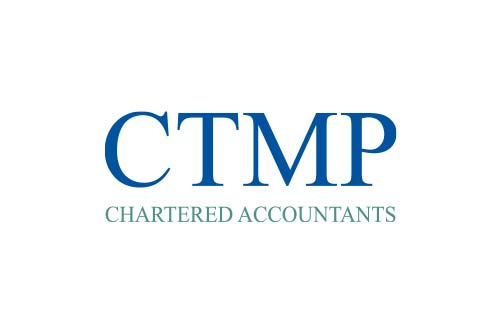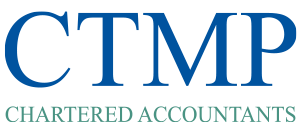
22 Oct What Sets Chartered Accountants Apart From Regular Accountants?
When managing your finances or handling business accounting, you may find yourself at a crossroads: should you hire a qualified chartered or regular accountant? While both play vital roles in providing essential services, there are significant differences in their qualifications, expertise, and professionalism.
Understanding the difference between an accountant and a chartered accountant is crucial when selecting someone to manage your finances effectively. This article explores the distinctions between chartered and regular accountants, along with the respective advantages of each for your financial needs.
Ready to elevate your project? Contact us today on 02087760200 or info@ctmp.co.uk for a personalised consultation, and let’s turn your vision into reality!
At CTMP, we believe every project deserves a unique approach. Our commitment to excellence and detail guarantees outstanding results every time.
Difference Between An Accountant And Chartered Accountant
1. Education And Qualifications
The most notable difference between chartered and regular accountants is their education and professional qualifications.
- Chartered accountants – Becoming a chartered accountant involves a rigorous educational path. Typically, this includes completing a degree in accounting or a related field, followed by specialised accounting studies.
Candidates must also pass professional qualification exams from recognised bodies. This challenging final stage equips them with in-depth accounting, taxation, and finance knowledge. Additionally, they must demonstrate practical experience through a training period of 3 to 5 years under the supervision of a certified accountant.
- Regular accountants – In contrast, regular or non-chartered accountants face less stringent educational and certification requirements. While many have degrees in accounting or finance, they are optional to obtain the advanced professional certifications that chartered accountants pursue.
Although they can provide valuable accounting services, their expertise may be more limited than that of chartered accountants.
2. Professional Standards And Ethics
Chartered accountants are held to higher professional standards than regular accountants due to their membership in professional accounting associations. These associations enforce strict rules, codes of ethics, and regulations to ensure the profession remains relevant and accountable.
- Chartered accountants – Every accountant must adhere to the rules set by their professional accounting association, including a comprehensive Code of Ethics. They must participate in Continuing Professional Development (CPD) to stay updated on tax, accounting, and legislative changes.
Membership in these associations mandates adherence to professional ethics and effective management of potential conflicts. Violating these standards can lead to severe consequences, such as fines, suspension, or loss of their charter.
- Regular accountants – While they are also expected to act ethically, they may not be formally bound by the same stringent standards as chartered accountants.
Their work is typically subject to less oversight, and they usually need the exact requirements for ongoing training or education to advance in their careers. This can result in a less structured approach to professional development and ethical accountability.
3. Scope Of Services
One more area of differentiation between chartered accountants and regular accountants is their services.
- Chartered accountants – They are trained professionals with a broader practice scope than regular accountants. They are licensed to conduct statutory audits and examine financial statements to ensure compliance with regulations.
Additionally, they provide tax advisory services, helping clients legally minimise tax liabilities. Chartered accountants also play a crucial role in financial management by assisting with budgeting, forecasting, and overall financial planning. Furthermore, they collaborate with top management and governance boards to establish corporate governance policies that prevent financial fraud and ensure legal compliance.
- Regular accountants—On the other hand, a regular accountant can perform essential accounting functions such as bookkeeping, preparing tax returns, or even handling different aspects of payroll. Still, their work is usually limited and less broad than that of chartered accountants.
4. Specialisation And Expertise
Chartered accountants typically possess specialised expertise in specific areas of finance and accounting. This specialisation results from their intensive training and certification processes, which enhance their skills for particular industries, making them highly marketable.
- Chartered accountants – Many chartered accountants focus on specific areas such as tax, audit, advisory, or forensic accounting. They often specialise in industries like banking, healthcare, or real estate, developing a thorough understanding of the relevant financial laws. This expertise enables them to render quality accounting services to address complex financial issues, including mergers and acquisitions, corporate transformations, and international taxation.
- Regular accountants – While they are proficient in accounting fundamentals, they need more depth of specialisation in chartered accountants. They typically handle general financial tasks and are not expected to provide strategic advice on advanced financial matters.
5. Cost Of Services
The cost of services from chartered and regular accountants can vary significantly based on the services’ complexity. Why choose a Chartered Accountant for your business? Chartered accountants often handle more complex financial tasks, making them ideal for businesses seeking strategic financial planning, audits, or international tax advice.
- Chartered accountants – Generally, chartered accountants charge higher fees due to their advanced qualifications and the broader range of services they provide. Their expertise in navigating complex financial processes justifies the higher cost many businesses and individuals are willing to pay.
- Regular accountants – In contrast, regular accountants often compete at lower prices for basic accounting services, such as bookkeeping, tax returns, and payroll. They can be a more economical choice for small and medium-sized businesses or individuals with straightforward accounting needs.
Contact us
When To Choose A Chartered Accountant Over A Regular Accountant
The decision to hire a chartered accountant instead of a regular accountant depends mainly on the extent of your financial needs. Understanding the key differences between chartered and regular accountants is essential for making the right choice, as chartered accountants offer specialised services beyond standard bookkeeping and tax filings.
1. Choose A Chartered Accountant If
- You need your business or nonprofit organisation audited.
- You require assistance with tax problems, especially in international tax planning.
- You are running a complex structure, such as a corporation or partnership.
- You seek strategic financial advice related to growth, mergers, or restructuring.
- You are expanding your business and facing cross-border financial complexities that require regulatory compliance.
2. Choose A Regular Accountant If
- You have straightforward bookkeeping tasks.
- You need help filing personal tax returns and basic business taxes.
- You require assistance with employee payroll.
- You operate a small business with elementary financial operations.
See what our customer has to say about CTMP –
“Cemal and the CTMP team have always been a huge help with our business. We have worked with CTMP for many years now, and they do take the stress out of our accounting needs. They are an extremely friendly and professional team and always quick to respond.”
— Sahin Gok, Meze Mangal Restaurant
Don’t leave your success to chance! Contact our expert team for a free consultation on 0208 776 0200 or email info@ctmp.co.uk for tailored solutions that drive results.


